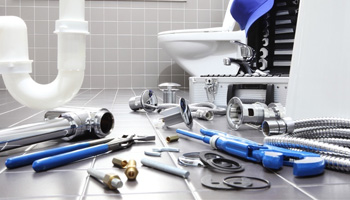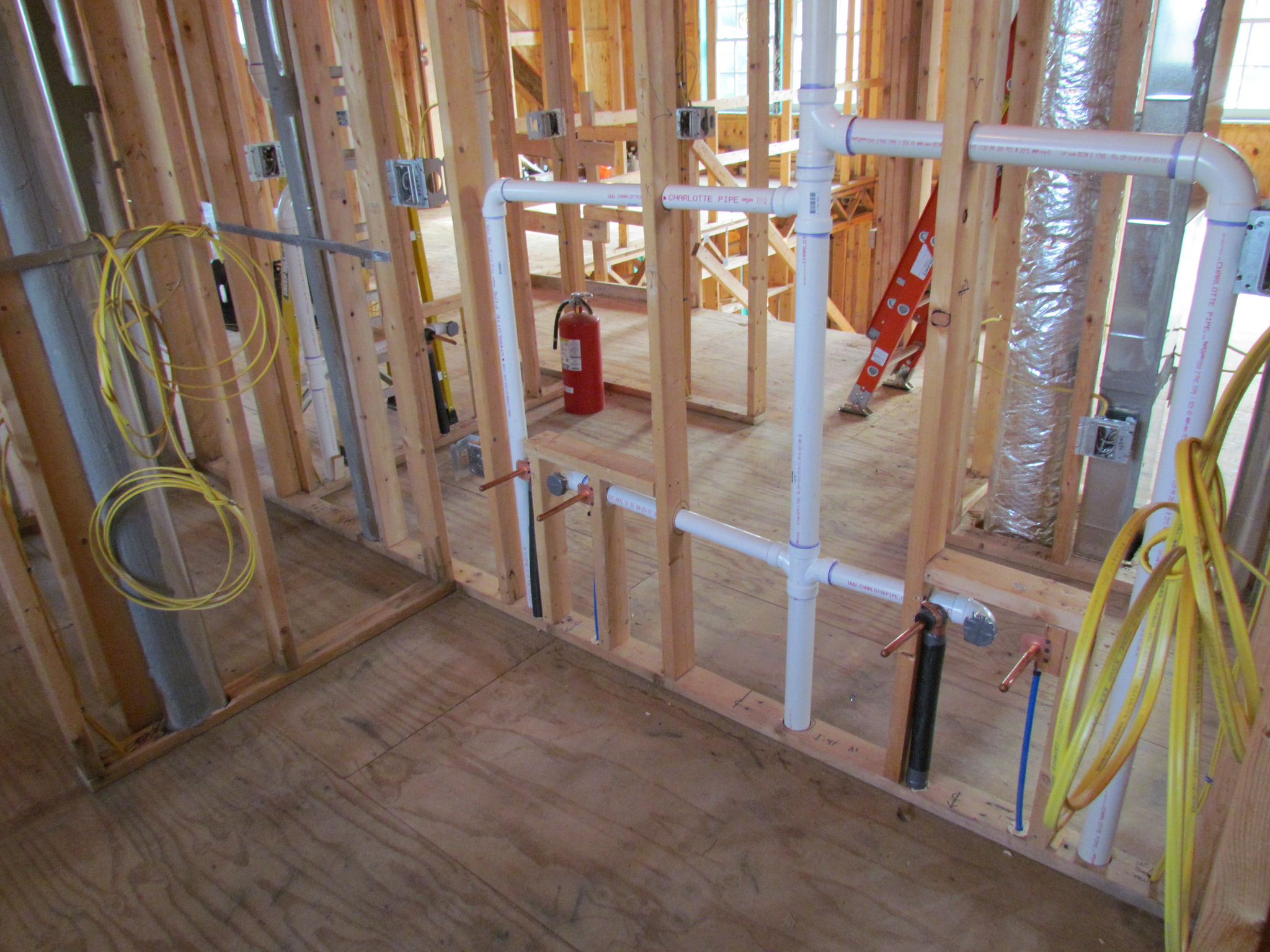In this article down the page yow will discover more amazing resources relating to Understanding Your Home's Plumbing Anatomy.

Understanding exactly how your home's plumbing system works is vital for every home owner. From providing clean water for drinking, cooking, and bathing to safely eliminating wastewater, a well-kept pipes system is important for your family members's health and convenience. In this extensive overview, we'll explore the elaborate network that comprises your home's plumbing and offer pointers on maintenance, upgrades, and managing usual problems.
Intro
Your home's pipes system is more than simply a network of pipes; it's a complex system that ensures you have accessibility to clean water and reliable wastewater removal. Recognizing its parts and how they work together can help you protect against expensive fixings and ensure whatever runs smoothly.
Standard Components of a Pipes System
Pipes and Tubes
At the heart of your pipes system are the pipes and tubes that lug water throughout your home. These can be made of numerous materials such as copper, PVC, or PEX, each with its advantages in regards to durability and cost-effectiveness.
Fixtures: Sinks, Toilets, Showers, and so on.
Components like sinks, commodes, showers, and tubs are where water is used in your house. Comprehending just how these fixtures attach to the plumbing system assists in diagnosing issues and preparing upgrades.
Valves and Shut-off Points
Valves regulate the circulation of water in your pipes system. Shut-off valves are crucial throughout emergency situations or when you need to make repair work, allowing you to separate parts of the system without interfering with water flow to the entire home.
Water System
Key Water Line
The main water line connects your home to the community water or a private well. It's where water enters your home and is dispersed to various components.
Water Meter and Pressure Regulatory Authority
The water meter measures your water usage, while a stress regulatory authority guarantees that water streams at a risk-free pressure throughout your home's plumbing system, preventing damage to pipelines and components.
Cold Water vs. Hot Water Lines
Understanding the difference between cold water lines, which provide water directly from the primary, and warm water lines, which carry warmed water from the water heater, aids in repairing and planning for upgrades.
Drain System
Drain Pipes Pipeline and Traps
Drain pipes bring wastewater far from sinks, showers, and commodes to the sewer or septic system. Catches avoid sewer gases from entering your home and additionally trap particles that might cause blockages.
Ventilation Pipelines
Ventilation pipes allow air right into the drain system, avoiding suction that might slow water drainage and cause traps to empty. Appropriate ventilation is important for keeping the integrity of your pipes system.
Relevance of Proper Drain
Ensuring appropriate water drainage protects against backups and water damage. Consistently cleaning drains and keeping traps can stop pricey fixings and expand the life of your plumbing system.
Water Heating Unit
Kinds Of Hot Water Heater
Hot water heater can be tankless or typical tank-style. Tankless heating units heat water as needed, while containers save warmed water for immediate use.
Updating Your Pipes System
Reasons for Upgrading
Updating to water-efficient fixtures or changing old pipelines can enhance water top quality, decrease water costs, and increase the value of your home.
Modern Pipes Technologies and Their Benefits
Check out modern technologies like wise leakage detectors, water-saving commodes, and energy-efficient water heaters that can save cash and lower environmental impact.
Expense Considerations and ROI
Determine the ahead of time prices versus lasting cost savings when considering pipes upgrades. Lots of upgrades pay for themselves through decreased utility bills and less fixings.
Just How Water Heaters Connect to the Plumbing System
Recognizing exactly how water heaters attach to both the cold water supply and warm water distribution lines helps in diagnosing concerns like inadequate hot water or leaks.
Upkeep Tips for Water Heaters
On a regular basis purging your water heater to eliminate debris, checking the temperature level settings, and inspecting for leakages can prolong its life-span and improve energy effectiveness.
Usual Pipes Problems
Leaks and Their Reasons
Leakages can take place as a result of maturing pipelines, loose installations, or high water pressure. Attending to leakages without delay protects against water damage and mold and mildew growth.
Blockages and Blockages
Obstructions in drains pipes and bathrooms are typically caused by flushing non-flushable things or a buildup of oil and hair. Utilizing drain displays and bearing in mind what goes down your drains pipes can stop clogs.
Indications of Plumbing Troubles to Look For
Low tide pressure, slow-moving drains pipes, foul odors, or uncommonly high water costs are signs of possible pipes issues that need to be addressed promptly.
Pipes Maintenance Tips
Normal Examinations and Checks
Set up annual plumbing assessments to catch problems early. Try to find indications of leaks, deterioration, or mineral buildup in faucets and showerheads.
DIY Upkeep Tasks
Simple jobs like cleaning faucet aerators, checking for bathroom leaks using color tablet computers, or protecting revealed pipelines in chilly environments can stop significant pipes issues.
When to Call a Professional Plumbing Professional
Know when a pipes problem needs specialist experience. Trying intricate repair work without proper understanding can bring about more damages and greater repair work expenses.
Tips for Minimizing Water Usage
Easy practices like repairing leaks promptly, taking much shorter showers, and running full loads of laundry and meals can save water and lower your utility bills.
Eco-Friendly Plumbing Options
Think about lasting plumbing materials like bamboo for flooring, which is durable and environment-friendly, or recycled glass for countertops.
Emergency Preparedness
Steps to Take During a Plumbing Emergency
Know where your shut-off valves lie and just how to switch off the water supply in case of a burst pipeline or major leak.
Significance of Having Emergency Situation Get In Touches With Convenient
Keep get in touch with information for neighborhood plumbings or emergency solutions easily available for fast action during a pipes crisis.
Ecological Effect and Conservation
Water-Saving Components and Devices
Setting up low-flow taps, showerheads, and commodes can significantly decrease water usage without giving up performance.
Do It Yourself Emergency Fixes (When Relevant).
Momentary solutions like utilizing duct tape to patch a dripping pipe or placing a bucket under a leaking faucet can minimize damage till an expert plumbing arrives.
Final thought.
Understanding the anatomy of your home's pipes system equips you to maintain it efficiently, saving money and time on repair services. By following normal maintenance routines and staying informed concerning contemporary plumbing technologies, you can guarantee your plumbing system runs effectively for years ahead.
HOW YOUR PLUMBING SYSTEM WORKS
Which Pipes Do What?
Blue lines = fresh water supply entering the building Red lines = hot water supply entering the building Grey lines = pipes carrying waste away from the building and venting pipes carrying gases away from the building (through the roof) YOUR MAIN PLUMBING SYSTEMS
There are two main plumbing systems that support your home s basic plumbing needs one that brings clean water into your home, and one that sends dirty water away from your home. Connected to the toilet, bath, shower, and other faucets in your home, these two systems keep your water flowing in the right directions.
ACCESSING FRESH WATER
Fresh and clean water is brought into your home through the main water supply line . Filtered through one pipe, this water is pressured to flow into the various fixtures in your home at any given time.
This water can be sourced from a well located on your property, a pond or river (mostly cottages), or, as in most cases, from the city s municipal water treatment centre. However, it is important to note that water that is untreated, such as the water siphoned from ponds or rivers, may not be safe to drink. Personal water supplies always need to be treated for hardness and contaminants before consumed.
MUNICIPAL WATER SUPPLIES
Improve taste and odour Remove sediment Eliminate hardness Reduce chlorine COLD WATER SUPPLY VS. HOT WATER SUPPLY
Cold water flows into your home or building through the service line, which then distributes hot or cold water to your fixtures. This line is most commonly run through a central column that runs floor to floor. Hot water runs in short and straight pipes as the longer the pipeline, the more heat that will be lost in the transfer. Having shorter pipes also allows residents to access hot water more quickly.
WASTE WATER SYSTEM
Your wastewater system is divided into two parts pipes that send wastewater away from your home and venting pipes that send sewer gas away from your home. Sewage water travels through pipes that flush the water and waste towards local sewers that are operated and managed by your city or town. Most sewer systems rely on gravity to move the wastewater to where it needs to go.
The further away from your toilet or sink, the larger wastewater pipes become. This allows for waste to be disposed of from various parts of your home or business at once without pipe blockages. The angle and flow of these pipes are also essential for keeping your waste pipes clear of build up.
https://harrisplumbing.ca/how-your-home-plumbing-system-works/

As a person who reads on Anatomy of a House: Understanding the Components, I think sharing that excerpt was smart. Are you aware of someone else who is sincerely interested in the niche? Feel free to share it. We truly appreciate reading our article about The Inner Workings of Your Home's Plumbing.
Estimating